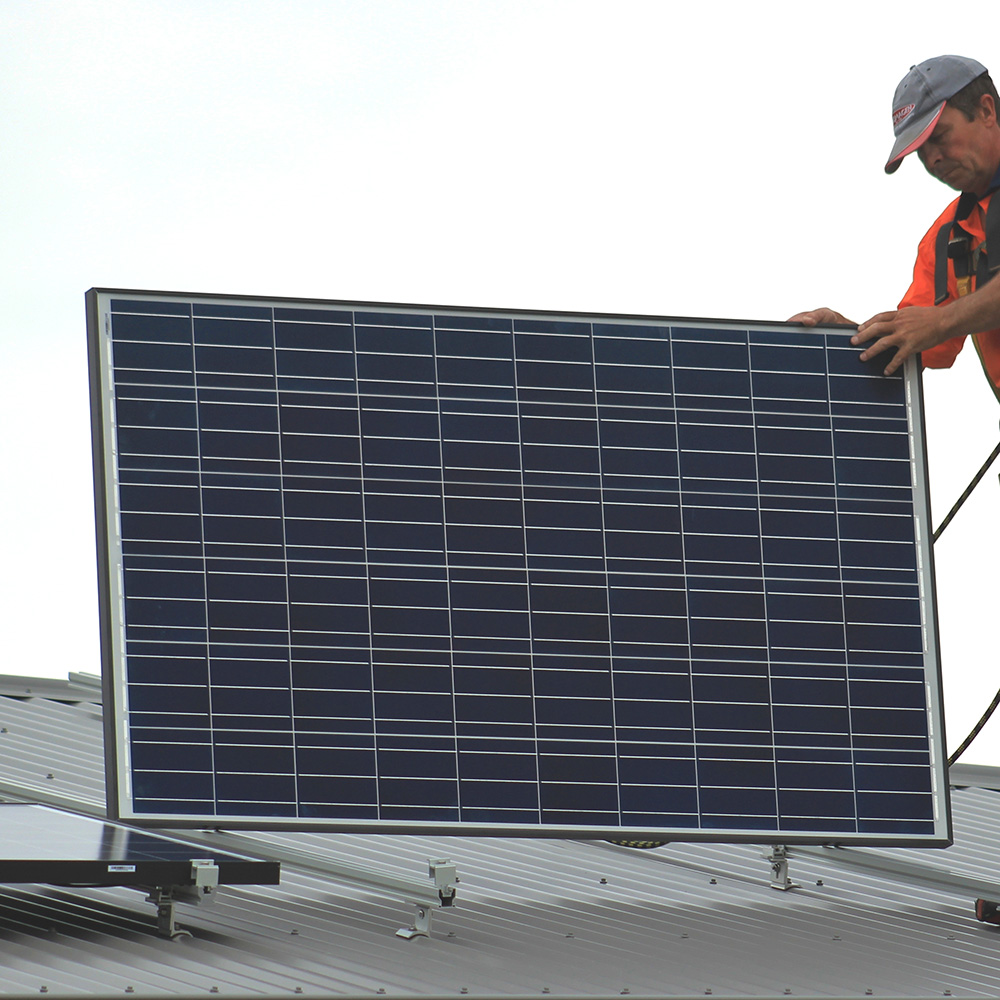Important notice
for manufacturers
Updated international standards for PV modules are being phased in with a change to requirements for the approved PV modules list. From 1 May 2026, new applications for products to feature on the CEC’s approved PV module list must be certified to IEC 61730:2023.
Approved modules list
Browse the Clean Energy Council's list of approved (fire-tested) solar photovoltaic (PV) modules suitable for installation under the Small-scale Renewable Energy Scheme (SRES).
This list contains over 1,500 solar panel models that have been approved as meeting international standards – IEC 61215:2021, as well as additional requirements for safety and consumer protection. It is a condition of some electricity network providers and government rebate programs, including the Small-scale Renewable Energy Scheme (SRES) that solar systems use PV modules from this list.
Model Numbers with a (IEC 61215-2021) suffix are approved with certification to IEC 61215:2021.
See below the table for additional notes, including on Enhanced Listings for modules that meet additional standards.
Updates to licensee/certificate holder names and model numbers for select approved products
We have made changes to model numbers or licensee/certificate holder names for a small number of approved products.
Please refer to the corresponding date of change and explanatory notes for each model on the list and ensure you use the correct details for STC claims.
Enhanced listings
It can be difficult when purchasing a PV module to understand what makes a quality product. While the modules on the Clean Energy Council Approved Products List meet the relevant Australian and International Standards, this is only a minimum requirement.
To assist purchasers in identifying quality products, the Clean Energy Council’s list of approved PV modules now highlights products that meet a range of higher standards through enhanced listings.
An enhanced listing means that the manufacturer has undertaken to use only those materials that meet both the base standards and the requirements of the additional standards.
Enhanced listings give installers and consumers the critical information they need to select modules of the highest possible quality and that are appropriate to their installation environment.
After ensuing that you have met all the requirements in the Enhanced Listings Checklist, you can submit the details for consideration of an enhanced listing by email at the time of application.
No additional fee is charged for Enhanced Listings if applying with a PV Module application. Applying for Enhanced Listings for PV Modules already approved by CEC may incur an additional fee.
IEC 61701 Salt mist corrosion resistance
This standard is important if you are installing in a coast location, particularly within 500m of the sea to ensure the modules will not degrade prematurely.
IEC 62716 Ammonia corrosion resistance
This is important in the vicinity of intensive livestock production such as chicken, pig and cattle sheds. The animals give rise to ammonia which can degrade some panels.
IEC TS 62804 PID Resistance
This technical standard provides test methods for resistance to potential-induced degradation (PID). PID resistance is an important requirement particularly for larger systems where long-term output must be assured.
Installations in hot humid environments are particularly prone, and the problem is exacerbated with higher system voltages. As a technical standard, there are two alternative test methods and no pass/fail criteria. CEC currently allows certification to Method A with <3% degradation.
Important Note: Chint models listed with multiple suffixes
Chint New Energy Technology Co Ltd models are listed with multiple suffixes:
- (2016 / 2021) Suffix – This applies to models certified under IEC 61215:2021 and IEC 61730:2016, based on certificate numbers PV 50622349 and PV 50622351
- (IEC 61215-2021) Suffix – This applies to models certified under IEC 61215:2021 and IEC 61730:2023, based on certificate numbers PV 50625618 and PV 50625621, which aligns with the current CEC listing suffix format
The correct version for each module can be found on its nameplate label. Please note:
- Models with the (2016/2021) suffix were approved on March 15, 2024.
- Models with the (IEC 61215-2021) suffix were approved on December 23, 2024.
When submitting a claim for STCs, please ensure you select the correct model. If there’s a mismatch between the serial number and the listing, the STC trader and the importer/agent responsible for providing serial numbers to the Solar Panel Validation Scheme must resolve the issue. The CER is aware of this situation.
-
The PV models listed below have the (2016 / 2021 ) suffix under certificate PV 50622349
-
The PV models listed below have the (2016 / 2021 ) suffix under certificate PV 50622351
Product de-listings, suspensions and recalls and faults
Find details of products that have been recently removed from our products lists or recalled by the Australian Competition and Consumer Commission (ACCC) and understand how to report a fault.
Our product lists are dynamic and products can be suspended or de-listed at any given time if found in breach of the Clean Energy Council's product listing terms and conditions. View recent de-listings and suspensions below.
You can also view Product Recalls, issued by the ACCC. If a product is recalled by the regulator, it may be removed from our product lists if it also constitutes a breach of the product listing terms and conditions.
If you spot a fault with a Clean Energy Council approved product or believe it breaches our terms and conditions, report it here.
Apply to have your PV module approved
Inclusion on the approved PV modules list is essential to participate in some electricity networks and government programs including the Small-scale Renewable Energy Scheme (SRES).
Manufacturers or nominated agents in Australia or New Zealand can apply to add their PV modules to the list here.

